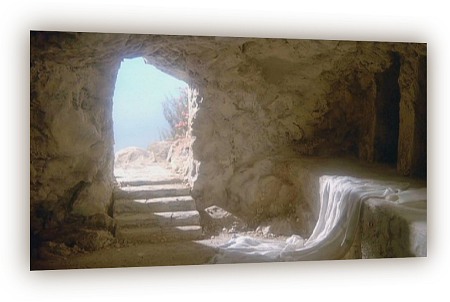 As I sat in class the first day, I begin to realize it was not what I expected. I should have dropped the course and signed up for another one. But I delayed in deciding upon an alternative and ended up stuck in the class.
As I sat in class the first day, I begin to realize it was not what I expected. I should have dropped the course and signed up for another one. But I delayed in deciding upon an alternative and ended up stuck in the class.
Rather than a course dealing with the various methods of accounting as I expected, it ended up being about the philosophy of accounting. Later it morphed into a discussion of truth itself.
The professor asked us to read an article he wrote in which he asserted there was no such thing as objective truth. All truth statements were thus in one sense equally valid and perhaps also equally invalid in the same the way. No one belief system was better than another; objective truth could not be known.
In the next class period, I pointed out that such a statement contradicted itself. Wasn’t he making an objective truth statement while denying the possibility of such a statement? His statement itself was an assertion of objective truth; the very thing he said was impossible.
The teacher showed respect for my beliefs and allowed me to voice my many objections to his atheistic worldview although I did not sway him in any way toward a biblical point of view. We had some interesting discussions regarding the subject of truth for the rest of the semester as I realized my purpose for being in the class.
My class was many years ago, but the questions remains today: What is truth?
It actually goes back at least two thousand years, to when Jesus stood trial before Pilate. In response to the Lord’s assertion that he had come into the world “to bear witness to the truth,” the governor responded, “What is truth?” (John 18:37-38).
The ancient Roman governor mocked the whole idea of truth. Even if truth had any value, which he doubted, what did it matter at that moment? What good was bearing witness to the truth if one was going to be crucified that very day? In Pilate's eyes, he had the power; Jesus did not, so what difference did the truth make anyway?
Jesus is the Truth
Just hours earlier, Jesus had told His disciples this, “I am the way, and the truth, and the life. No one comes to the Father except through me” (John 14:6). Jesus not only came to bear witness of the truth, He claimed to be “the truth.”
This is a remarkably bold statement in many ways. Jesus claims to be the embodiment of truth as well as the only way of salvation. In contrast to my professor’s assertion, Jesus said objective truth indeed existed and more than that, He was it. The Word had become flesh and dwelt among us as the apostle John later asserted in his Gospel.
His statement also refuted the mocking of Pilate. Truth mattered because He was the only path to the Father and to eternal life. All other belief systems lead to death; only Jesus has the words of life and is the way to eternal life. He soon demonstrated why He could make such a bold claim.
Who else through all history has ever accurately predicted their death and the precise timing of their resurrection?
On the third day after being nailed to the cross, Jesus rose from the dead just as He said He would do. Has there ever been a greater confirmation of the truth of one’s own words? Who else through all of history has ever accurately predicted their death and the precise timing of their resurrection? No one has ever risen from the dead for that matter, apart from our Lord, let alone predicted it!
This is what sets true Christianity above all other belief systems. The grave is empty. Jesus is alive. His words are truth and of supreme value.
Why Does It Matter?
C.S. Lewis once said this, “Christianity, if false, is of no importance, and if true, of infinite importance. The only thing it cannot be is moderately important.”
Our faith is of “infinite importance” because Jesus rose from the dead. His radical claim to be “the way, the truth, and the life,” the only path to eternal life is true because He is alive.
C.S. Lewis once said this, “Christianity, if false, is of no importance, and if true, of infinite importance. The only thing it cannot be is moderately important.”
If Jesus had remained in the tomb, our faith would be false and of absolutely no value. Paul said this in 1 Corinthians 15:19, “If in Christ we have hope in this life only, we are of all people to be pitied.” The apostle told the believers in Corinth that their faith was worthless if Jesus had not risen from the dead.
In the next verse, however, the apostle asserts, “But in fact Christ has been raised from the dead, the firstfruits of those who have fallen asleep.”
The fact Paul knew that some of the witnesses had already died suggests he likely could name most of the 500 who had seen the risen Savior.
As Paul wrote to the church in Corinth, most of the 500 people who saw Jesus alive after His resurrection were still around and able to testify to its validity (15:6). The fact Paul knew that some of the witnesses had already died suggests he likely could name most of the 500 who had seen the risen Savior.
So not only does objective truth exist, as validated by Jesus’ resurrection, it has infinite value. We dismiss it to our peril because Jesus is not only truth, but also the only true source of life.
If you have never put your faith in Jesus as your Savior, please do so before it is too late. We have become so familiar with the words of John 3:16 that they often lose their meaning when we read them. They do however, express the overwhelming value of the Gospel, “For God so loved the world that he gave his one and only Son, that whoever believes in him shall not perish but have eternal life.”
A few weeks ago, my wife and I went to see the Case for Christ. The movie shows the response of Lee Strobel to his wife’s decision to trust Christ. He was not happy, to say the least. He decided to use his skills as an investigative reporter for the Chicago Tribune to refute the claims of Christianity. He remained confident all the way through his intensive scrutiny of the facts that he could disprove the resurrection of Jesus and bring his wife back to his atheistic point of view.
For two years he dedicated himself to proving that the claims of Jesus were a sham and He was still in the grave. One morning, after remaining at work all night to review the evidence, he came home and uttered these simple words to his worried wife, “I believe.”
What makes the truth claims of Jesus stand far above those of my cynical professor? He rose from the dead just as He said He would do. He is alive.
And if He is alive, He is the only path of salvation. All the founders of all the world’s religions, philosophies, and belief systems are all dead. As such they offer no life, no hope . . . nothing at all, only death.
Speaking just weeks after Jesus’ resurrection the Apostle Peter uttered these words, “Salvation is found in no one else, for there is no other name under heaven given to mankind by which we must be saved.”[i] He confirmed the words of Jesus, salvation is only found in Christ.
In the same way the early church began to look for His return. For if Jesus said He was returning for them, they knew He would do what He said.
We also look for His return because based on His track record of truth, if He says He is coming to take us to His Father’s house, He is certainly going to do it. Of this there can be no doubt.
Maranatha! Our Lord come!
[i] Acts 4:12



 So what???
So what???